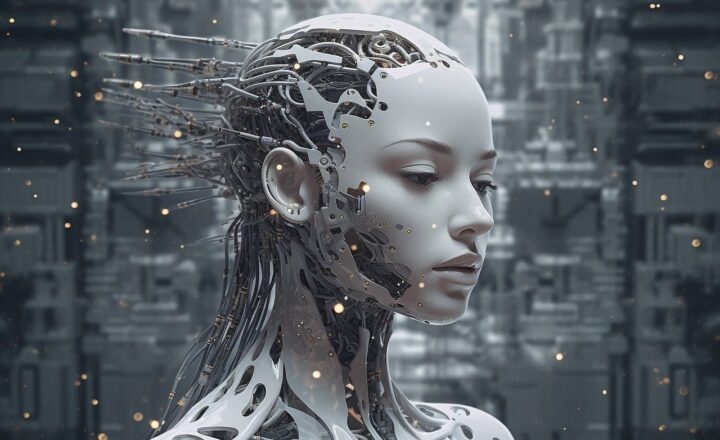The Most Bizarre Predictions About the Future That Turned Out to Be True
November 16, 2024

Throughout history, human beings have made countless predictions about the future. While many have turned out to be wildly inaccurate or simply fanciful, some bizarre predictions have actually come to fruition. This article delves into some of the most astonishing and unexpected forecasts that seemed preposterous at the time but eventually became reality.
1. The Rise of the Internet
In the early 1960s, computer scientist J.C.R. Licklider predicted a global network of interconnected computers — a seemingly absurd concept in an era dominated by Typewriters and telephones. He envisioned a future where information could be easily shared across long distances, without relying on physical media. Fast forward to the 1990s and early 2000s, when the Internet burst into mainstream life, reshaping society, commerce, and communication.
Today, Licklider’s once-bizarre forecast applies to billions of people, as we navigate an interconnected world driven by the Web. Online shopping, social media, and remote work have all emerged from this foresight.
2. The Prediction of Cell Phones
Author Arthur C. Clarke, best known for his work in science fiction, described a future where handheld devices would allow people to communicate anywhere on the globe in his 1968 novel, “2001: A Space Odyssey.” At that time, it seemed like pure fantasy; phones were tethered to walls and called limited families and businesses.
However, the evolution of technology led to the creation of mobile phones in the following decades. Today, smartphones are ubiquitous, serving not only as communication devices but also as portable computers, cameras, and navigation systems. Clarke’s vision turned out to be an accurate glimpse into the future.
3. The Rise of Artificial Intelligence
In the 1950s, computer scientist John McCarthy coined the term “Artificial Intelligence” (AI). At the time, predictions about AI’s capabilities included machines that could ultimately replicate human thought processes. Critics brushed off these ideas as overreaching sci-fi nonsense.
As we entered the 21st century, developments in machine learning and neural networks led to AI systems that can analyze vast amounts of data, perform complex calculations, and even create art. AI is now integral in fields like finance, healthcare, and customer service, revolutionizing how we live and work. McCarthy’s radical idea became a cornerstone of modern technology.
4. Surveillance and Totalitarianism
George Orwell’s dystopian novel “1984” painted a chilling picture of a world dominated by governmental surveillance and control. Written in 1949, this fiction seemed a mere exaggeration of potential governmental powers. However, the onset of modern technology, especially in the realm of digital surveillance, makes Orwell’s warning relevant today.
With the proliferation of smartphones, GPS tracking, and social media, personal privacy is increasingly eroded. Governments and corporations collect and utilize vast amounts of data on individuals, echoing Orwell’s cautionary tale of the ever-watchful state. The bizarre prediction has morphed into a major contemporary societal issue.
5. Space Travel and Lunar Colonies
In 1948, science fiction writer and futurist Isaac Asimov predicted that humanity would travel to the moon and have established a colony there by the year 2019. While his timeline wasn’t spot on, the seeds of his prediction were planted in reality. The implications of space travel have entered the public consciousness, shaping aspirations and igniting curiosity about colonization.
As of today, space agencies around the world, including NASA and private companies like SpaceX, are actively working towards not only returning to the Moon but establishing colonies on Mars too. The once improbable dream of extraterrestrial habitation is slowly being realized.
6. The Concept of Virtual Reality
In 1982, author Philip K. Dick described immersive simulated realities in his novel “The Simulacra.” At the time, virtual reality was regarded as far-fetched science fiction. However, the advent of advanced graphics and computing power in the 21st century has given rise to VR technology, allowing users to experience new worlds and situations.
Companies like Oculus Rift and HTC Vive have popularized virtual reality gaming and experiences, making what was once a fantasy a tangible, interactive reality. Today, VR is used not just in gaming but also in education, training, and virtual events.
7. The Transformation of Work and Telecommuting
In 1998, futurist and author Peter Schwartz predicted the rise of telecommuting as a trend that would dramatically redefine the workplace. While he envisioned a gradual transition toward this model, the advent of the COVID-19 pandemic in 2020 accelerated telecommuting, thrusting millions into remote work scenarios.
Today, businesses are reevaluating how they approach work culture, realizing the benefits of flexible work arrangements. Schwartz’s prediction of workplace transformation is not just occurring — it’s reshaping how companies operate around the world.
Conclusion
In the grand tapestry of predictions about the future, many have proved to be laughably incorrect. However, the bizarre forecasts that came true provide a fascinating glimpse into human creativity and imagination. These examples remind us that while the future often seems uncertain, extraordinary possibilities can manifest from unexpected predictions.
As we continue to push the boundaries of innovation and technology, we should embrace the unknown while anticipating what extraordinary developments may lie ahead. The remarkable foresight of individuals from earlier decades underscores the importance of vision, creativity, and the ceaseless quest for knowledge and improvement in humanity’s journey through time.








